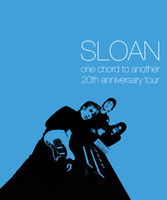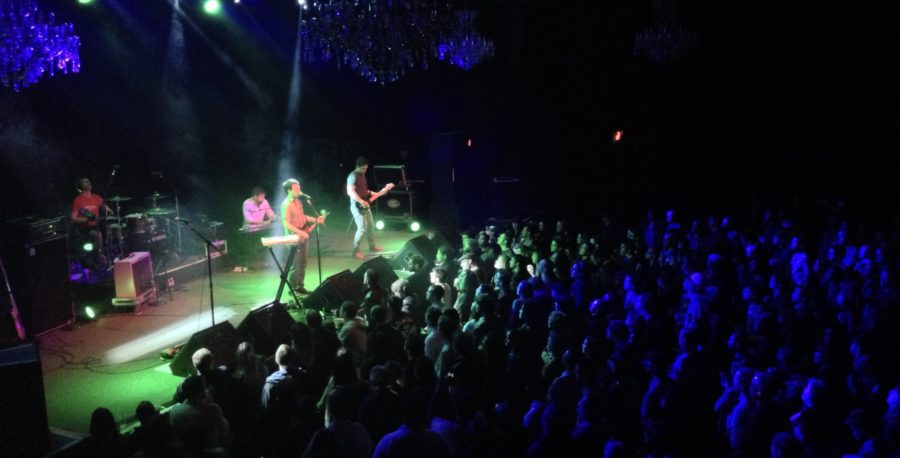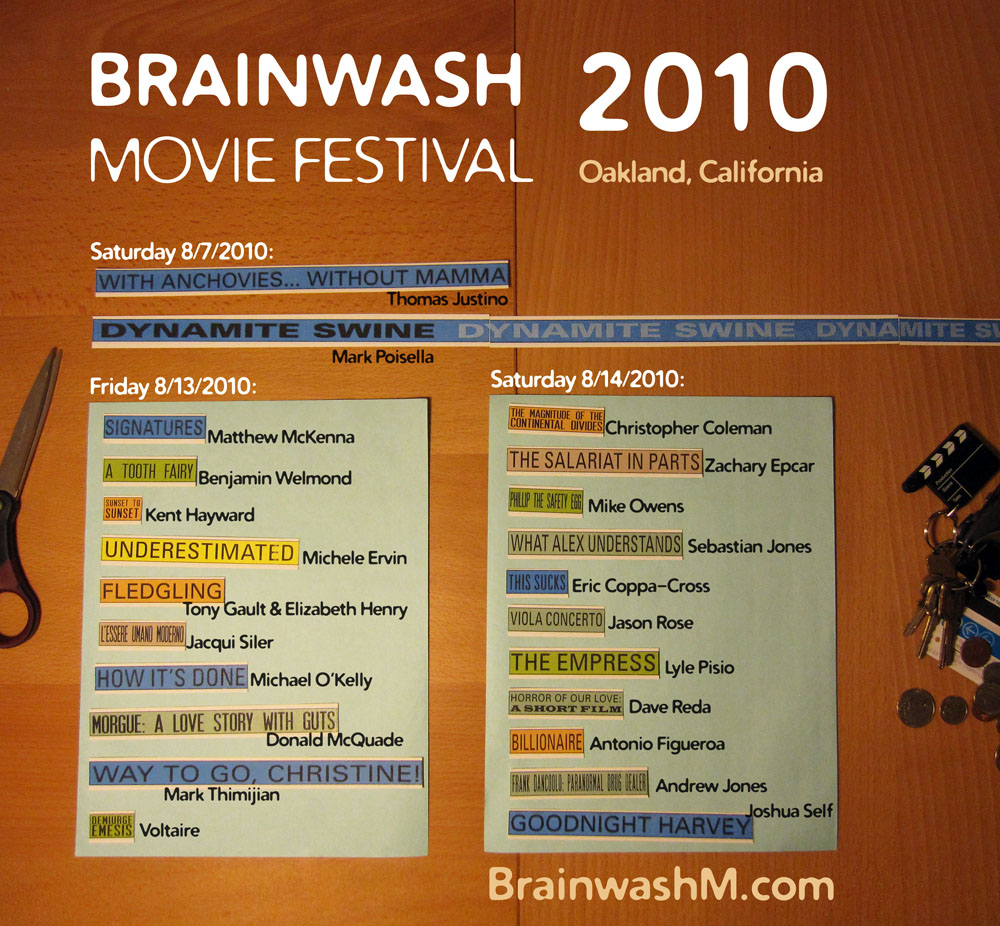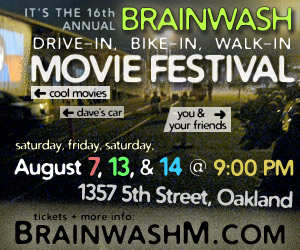Or “What is it about concerts? (Part II)”
(Previously, on Gohlkus Maximus.)
When I came up with the idea for writing this blog post, I never dreamed it would take nearly a decade to whip into shape. I also didn’t think I would go nuts at the Fillmore one spring Wednesday in 2008.
I don’t even slightly recall the incident (because why not block it out?), but here’s what I wrote back then: “There I was, minding my own business, rocking out to Death Cab for Cutie, at least 20 minutes into the show. The sound was amazing, I was pretty much able to see the band, and I knew every word to every song except for the new ones. Then some guy, a scant foot taller than me at about 6’4″, shoved past me and stopped right in front of me. I said something to him. He responded noncommittally. And then, I raged.”
That was where I left off in my description. I have no recollection of that incident, nor much else of that night, other than buying the T-shirt I still have. I’m guessing I blocked it out, as I did with much of that difficult time period. (My friend Chris almost certainly remembers, because he was there for that and other delightful interactions I’ve had with strangers. However, for some reason, I lack enthusiasm for hearing another “potentially dangerous things that depressed Jason did” story, and thus have not asked him about it in the five weeks since I rediscovered this draft blog entry.)
I do, however, remember the original idea pretty clearly.
Basically I had conceived of two or three main categories of concertgoers. If you’ve ever been to a concert, you probably can guess what I’m talking about.
You’ve got the enthusiastic early birds who line up before the doors open and camp out immediately in the closest possible spot to the stage (where you can see the musicians much better than you can hear them). One thing to note about standing somewhere for several hours, with the same people around you who got there essentially the same way you did, is that you feel a little comfortable. You may even feel a little entitled. Anyway, there is enough variation within this population that they form a few rows.
Those people who are evidently a bit less driven to absolutely maximize their visual enjoyment of a mostly auditory event (which is fine), well, they file in slowly (usually while the opening band is playing, which is also fine) to sort of loosely fill up the floor. They find a spot, drink their beverages, perhaps create occasional tendrils of smoke, and enjoy the show. Let it not go unsaid: They are cool. They are all right. They may be the ones to aspire to be.
And then. Then there is the other group of people who used to drive me crazy (though it’s fine if you want to argue that I was already crazy). Whenever these big jerks actually arrive at the venue, they use this gambit about two to four songs into the headliner’s set, when people have let down their guard and are focused on the show. (I have always assumed that these people arrive late, but now it occurs to me they may even be more diabolical than I’d suspected.) Perhaps they have never in their lives shown up to a concert early, and maybe they were taught early in life that it’s a dog-eat-dog world, and thus they assume everyone got their spot the way they do it. This is what they do: They push and shove their way to the front, physically displacing likely dozens of people on their way to those first few key rows, thus placing them directly in front of one or more of those people who had staked out a spot for, generally, hours.
To a certain very sensitive kind of person, that kind of behavior is very, very upsetting.
Naturally, I was curious tonight if anyone else had taken on this topic in the years since I came up with it, so I searched and found a few pages that (rather superficially, in my opinion) discuss “types of concertgoers” (and by “discuss” I mean make a list with at most a sentence or two per bullet). A couple of them lightly acknowledge and dismiss the kind of jerk I’m talking about here. (“I mean I only stood here for two hours to be in the front, but you, you definitely can go in front of me.”) Yet none of them really focus on what I used to allow to stoke my rage.
That’s the thing: As long as we have people, and concerts, there will always be assholes who push their way to the front of concerts. Most people, when faced with that situation, shrug and say, “glad they’re not in front of me,” or “it’s not worth getting mad.” But I have always had a strong tendency to want to right perceived injustices. (Especially when I’m the one who’s been wronged, admittedly.)
Even if I liked to imagine one in those old, naïve, idealistic days, there is nowhere near a sufficient enough sense of community among the people near the front of the show (especially after the lights go down) for it to matter too much to them when an aggressive jerk, usually tall, rarely female, shoves in front of someone else. It’s too temporary an arrangement to get involved with someone else’s problem. The initial aggressive behavior goes unpunished, and it’s the response in kind that ends up getting negative attention. Probably understandably. People came there to see a show, not to right a wrong (even if it happens to be getting in the way of someone else enjoying a show), and definitely not to see a lunatic yell at someone. (“Chill.” “Don’t trip.” Definitely good west coast advice.)
But in this situation and in general, the main reason not to allow anger to flame up into a full, active rage is that it simply does not pay. It is nowhere near worth it. It’s bad for your health in so many different ways (detailed elsewhere). It might also result in a fight (and I know I have friends who can’t believe I never got into one, because I can see how for a while it seemed like I was looking for one). I’m not saying I was always like that. But I was like that far more than was healthy for a relatively brief period of time.
The kind of concertgoer I have become is a different kind of enthusiastic early bird. Now I get there early enough to get a seat on the balcony (assuming the venue is large enough to have one) or a comfortable standing or sitting position in the rear of the room. Ideally, say at the Fillmore, if you get a balcony seat directly above the stage, you’re golden. If you’re in the back, sure, the performers are too far away to see, but the sound tends to be good, you can move around enough to see okay [and even so there will be a million photos of the show online afterwards], and (most importantly) no one will step directly in front of you enough to enrage you.
This all matters because my now most frequent fellow concertgoer is my wife. She has communicated quite clearly that she is in this for the long run — as long a run as possible. That matters to me. Like her, I want us both to be happy and healthy as long as possible. That matters enough for me to really have examined, and changed, my behavior.
We still like going to shows. We’re just the people who sit in the balcony or the back. And I am having more fun than ever.


 I am very excited for
I am very excited for 

